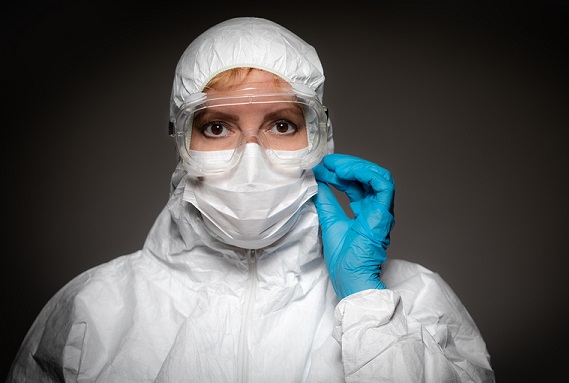 Nearly half of staff working in the intensive care unit during COVID-19 show signs of mental health conditions.
Nearly half of staff working in the intensive care unit during COVID-19 show signs of mental health conditions.
A study from Imperial College London found that 48 percent of healthcare staff showed signs of depression, insomnia and post-traumatic stress disorder.
“The study identified stark statistics. The proportion of staff who screened positive were 16-49% for depression, 60-86% for insomnia and 17-35% for post-traumatic stress disorder,” Dr Ahmed Ezzat, lead author of the study and Honorary Clinical Fellow at Imperial College London told Theravive.
“The study also shows female gender, advancing age and staff who are not based in intense care normally, were more vulnerable.”
The researchers also found those who spent more than six hours in personal protective equipment in a day had a 40 percent increase in mental conditions compared with their peers who didn’t.
The study is the first of its kind to evaluate the mental health of ICU healthcare staff during the COVID-19 pandemic.
In undertaking the study, the researchers enlisted 515 people working as healthcare workers in ICUs during May 2020. This included healthcare assistants, physiotherapists, nurses, junior and senior doctors. The workers were from Belgium, Egypt, China, Taiwan, France, Italy and UK.
The workers completed a questionnaire about their wellbeing and worries. The researchers then used three different types of grading systems to identify insomnia, PTSD and depression to plot their responses.
Across all of the countries involved in the study, the researchers found that 37 percent of those surveyed exceeded the threshold that suggested signs of depression, 78 percent exceeded the threshold for insomnia and 28 percent exceeded the threshold for PTSD.
There was a 40 percent increase of scores of depression in those who spent more than six hours or more in personal protective equipment daily. There was also a 23 percent increase in PTSD and insomnia. The researchers say this suggests that mental health conditions may intensify the longer a healthcare worker has to spend in personal protective equipment every day.
57 percent of those involved in the study said they felt very or extremely worried about being infected with COVID-19. 21 percent were very or extremely worried they would die from COVID-19 and 78 percent said they felt at least a bit numb about the loss of human life during the pandemic. 89 percent of those in the study reported thinking about their difficult work experiences in the ICU outside work.
Despite a growing awareness on the mental health impact of the COVID-19 pandemic on staff in ICU settings, the researchers say there is limited data on this.
“There is a concern the spotlight will shine away from healthcare staff generally, and ICU staff consequently, as the public hence political opinion move on with the emergence of COVID-19 vaccines and the perception of risk towards the virus is blunted. Whilst politicians balance public freedom, social relaxation, and economic recovery, I am worried health care workers are not front and centre of the conversation,’ Ezzat said.
“This subset has sacrificed and may be anxious as to what short/medium term uncertainty such pressures will pose. As a result, I worry an already exhausted group of staff may lose resilience, suffer fatigue. More concerning, is how many staff may be vulnerable, who have developed mental burden during the first peak of the pandemic back in April 2020 and never recovered.”
88 percent of the healthcare workers said they should be offered time off when it was clinically safe for hospitals to allow this and 85 percent said they agreed with offering counselling to healthcare workers.
Ezzat says the study emphasises the importance of supporting healthcare workers in ICU.
“Team based psychologists should be employed full time to offer daily support to team members. These can improve individual resilience, coping and personal welfare. Moreover, they can identify staff at risk of mental burden and support them early. Whilst hospitals do offer psychologist/counselling support, it is the person in need who has to instigate the first move to seek the help,” he said.
“Mental health amongst critical care workers has been negatively impacted during COVID-19. The shocking figures should change how we look after our workforce and support them by a change in stigma towards mental health. As stated within the study, most staff think psychologist services are helpful. We should offer short, medium and long term support for such staff.”
Elizabeth Pratt is a medical journalist and producer. Her work has appeared on Healthline, The Huffington Post, Fox News, The Australian Broadcasting Corporation, The Sydney Morning Herald, News.com.au, Escape, The Cusp and Skyscanner. You can read more of her articles here. Or learn more about Elizabeth and contact her via her LinkedIn and Twitter profiles.